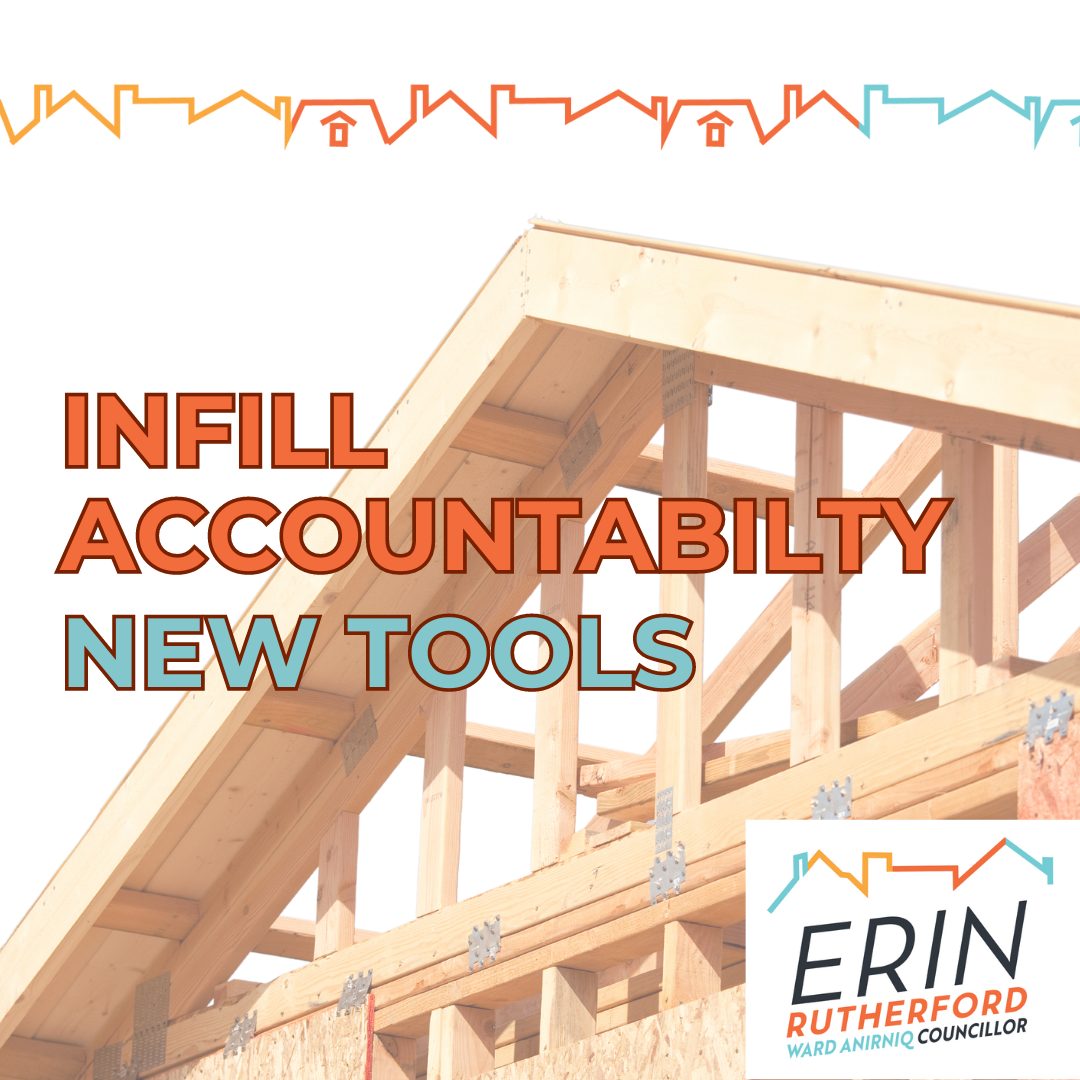Infill Accountability: New Tools
I’ve heard from residents about concerns with infill development and I’ve advocated for increased construction accountability. The City Plan targets 50% of new home units in redeveloping communities. That means building more housing in existing neighbourhoods, but we need to ensure that as the new housing is built, the developers and contractors are good neighbours. I agree that the City needs a robust strategy to ensure safe building activity and addressing issues and complaints.
At the Urban Planning Committee meeting on August 13th, Administration committed to the implementation of two new programs to support infill accountability and safety. They also recommended a centralized contact center for complaints.
The first program, called the Project Implementation Plan (PIP), will be implemented by October of this year. This document allows Safety Codes Officers and bylaw enforcement to more readily hold the constructor, owner, and/or permit holder accountable for any issues that arise on or around the site. These plans will be required for every development application (including demolition).
Additionally, the Construction Accountability Program (CAP) creates a legally sound opportunity to refuse permits for developers that repeatedly create non-compliant conditions or consistently use non-equitable levels of City resources due to repeated poor quality building permits. This program is proposed to be implemented by the start of 2025.
Administration also recognized the benefit of creating a centralized contact center for complaints to support continual improvement in responses. Currently, officers are geographically deployed and work is prioritized according to the infraction’s impact to health and life safety, land use and climate impacts. Priority file types include current construction without permits and residential living situations (e.g. lodging houses, problem properties and secondary suites). Committee directed Administration to look to cover the additional cost for this coordination in the permit application fees. There will be a report back to committee on this potential revision to fees to support this centralized approach.
Overall, I’m glad to see the Administration come forward with approaches that will address concerns from residents and evolve our processes as we grow as a city. I look forward to hearing from you in 2025 how this has improved infill development in your community.
